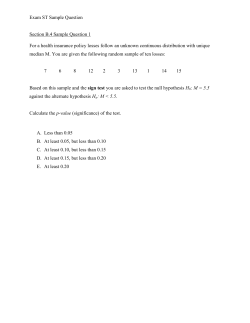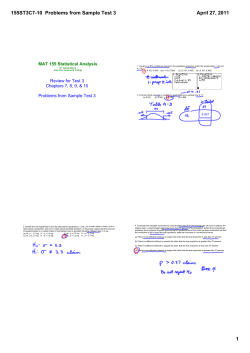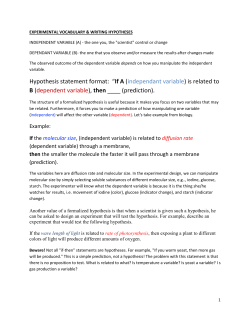
Scientific Method II
observation: You observe something form a hypothesis: A tentative explanation for a scientific observation question. testable: A hypothesis is testable if it can be supported or rejected by carefully designed experiments or observational studies. falsifiable: Describe a hypothesis that can be ruled out by data that show the hypothesis does not explain the observation. experiment: A carefully designed test, the result of which will either support or rule out hypothesis independent variable: the variable or factor being deliberately changed in the experiment group. dependent variable: the measured result of an experiment analyzed in both the experimental and control groups. sample size: the number of experimental subjects or the number of times an experiment is repeated, (the number of participants) statistical significance: A measure of confidence that the results obtained are real and not due to change. scientific theory: an explanation of natural world that is supported as a large body of evidence and has never been disproved. experimental group: the group in an experiment that experiences the experimental intervention or manipulation. control group: the group in an experiment that experiences no experimental intervention or manipulation. placebo: a fake treatment given to control groups to mimic the experience of the experimental group. correlation: a consistent relationship between two variables anecdotal evidence: an informal observation that has not been systematically tested. peer review: a process in which independent scientific experts read scientific studies before they are published to ensure that the authors have appropriately designed and interpreted the study. Presenting A Report: 1. Introduction: history, definitions, and hypothesis, what is already known. 2. Material and Methods (procedure) the experiment description 3. Results: Tables and Graphs of results 4. Discussions and Conclusions 5. References
© Copyright 2025

![[35] The Default Bayesian Test is Prejudiced Against](http://cdn1.abcdocz.com/store/data/001092197_1-5d6aeaa424ad1857b9e3610bc24d4fcf-250x500.png)














